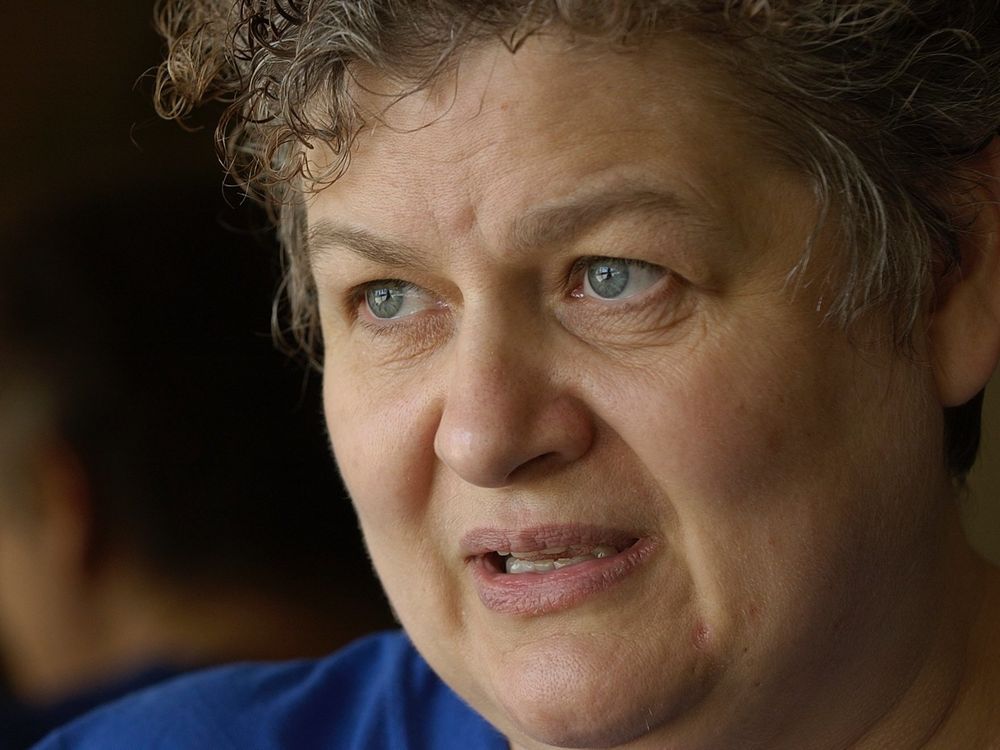Daphne Bramham: Outspoken activist against polygamy dies

Credit to Author: Daphne Bramham| Date: Wed, 22 Jan 2020 01:21:04 +0000
If it weren’t for Debbie Palmer, Canadians might not know anything about the polygamous community of Bountiful in southeastern British Columbia.
She was the first to lift the veil of secrecy that had protected the community from outsiders in the early 1990s.
By demanding criminal charges against the leaders for their abuse of women and children, she became a thorn in the sides of a succession of provincial attorneys-general, police and other politicians.
But she was shunned and shamed by family and childhood friends. Palmer’s activism took a huge toll. She died last weekend at the age of 64.
Palmer was the oldest in a family of 47 children. When she was only six, her mother died, leaving Debbie and her two siblings to be raised by their father’s other five wives, who had multiple children of their own.
At 15, Palmer was one of Bountiful’s first child brides. In a religious ceremony, she became the sixth wife of the community’s leader, Ray Blackmore. He was 40 years older than her. Palmer was a widow by 18.
The community’s elders, all men, placed her in another plural marriage to an abusive man. When it finally became intolerable in 1988, the mother of eight fled Bountiful, becoming one of the first women in either Canada or the United States to escape without leaving any of her children behind.
Almost immediately, Palmer began telling her story to journalists, including Sally Armstrong from Chatelaine and The Province’s Fabian Dawson.
When the RCMP ended its investigation in 1992 and recommended charges against Palmer’s father, Dalmon Oler, and against Winston Blackmore, the attorney-general’s ministry decided not to proceed. Taking advice from former B.C. Supreme Court chief justices, it was determined that Canada’s law against polygamy was unconstitutional.
Disappointed, but not daunted, Palmer convinced then-women’s equality minister Penny Priddy to fund a report about polygamy and the physical and sexual abuse of women in “a religious community in B.C.”
The Life in Bountiful report revealed a pattern of forced marriages, rigid demands of obedience, and a “distinct culture … that limits individual rights to the point of virtually eliminating them.”
It questioned whether children raised there could ever be capable of exercising free choice, including giving informed consent to sex and marriage.
It was so explosive that the government refused to release it.
Rancher Faye Street had been on the committee that helped put the report together. “I met with every goddamned minister and everybody I could to talk about what was going on in there,” she told me in 2007.
“I used to go home and not be able to sleep because I kept thinking, ‘How can this be happening here. We’re not from the Ozarks.’”
Over the years, Palmer became friends with Jon Krakauer, whose 2003 book, Under the Banner of Heaven, focused international attention on the fundamentalist Mormons.
In 2004, Palmer’s sister Jane Blackmore also fled Bountiful. The midwife and ex-wife of the once powerful bishop Winston Blackmore couldn’t have been more different. Debbie was a passionate, emotional firebrand. Jane is reserved, cautious and uncomfortable with the activist role that has frequently been forced upon her as a witness subpoenaed to testify against her ex-husband, her stepbrother and others.
At that time, both were enmeshed in a series of other events that were unfolding — a schism between two factions in Bountiful, the manhunt for Warren Jeffs, the prophet of the Fundamentalist Church of Jesus Christ of Latter Day Saints, and Utah’s and Arizona’s successful seizure of FLDS assets that were to be used to compensate polygamy’s victims, including the so-called Lost Boys forced out of their communities to make polygamy’s cruel arithmetic add up in favour of old men.
Palmer’s self-published and thinly disguised autobiography titled Keep Sweet: Children of Polygamy was briefly a Canadian bestseller in 2006, even though it was not readily available in Creston — the town nearest to Bountiful.
But by then, Palmer’s information was mostly historic. With a growing number of people leaving the FLDS, the spotlight had shifted and Palmer retreated into private life — not even emerging for B.C.’s subsequent constitutional reference case or later trials.
Yet without her pioneering efforts, two former fundamentalist Mormon bishops — her stepbrother James Oler, and Winston Blackmore, her brother-in-law and stepson — might never have been convicted of polygamy, and Oler and Brandon Blackmore (another of Palmer’s stepsons) and his wife, Gail Blackmore, might never have been jailed for illegally taking their under-aged daughters to the United States for coerced marriages.
The admonition to women and girls to Keep Sweet might have remained, spelled out in white stone on the mountainside above the government-funded school.
To anyone exposed to her unrelenting anger and what was, at the time, her seemingly incredible tales of abuse, Palmer could be exhausting and, at times, exasperating. She needed to be all of that and more in order to be heard.
And, in the end, Palmer proved Margaret Mead’s contention that it is the few caring people who change the world. Deborah Ann Oler Palmer was one of those who changed hers.
Twitter: @bramham_daphne